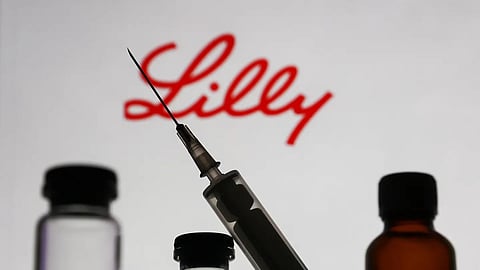
- NEWS
- the EDIT
- COMMENTARY
- BUSINESS
- LIFE
- SHOW
- ACTION
- GLOBAL GOALS
- SNAPS
- DYARYO TIRADA
- MORE

In a landmark decision, the U.S. Food and Drug Administration (FDA) has granted approval to Eli Lilly's new Alzheimer's treatment, Kisunla (donanemab). This groundbreaking drug joins a small but growing arsenal of treatments aimed at slowing the progression of the devastating neurodegenerative disease that affects over 6 million Americans. Kisunla's approval marks a significant milestone in the ongoing battle against Alzheimer's, offering new hope to patients and their families.
Kisunla belongs to a class of treatments known as anti-amyloid monoclonal antibodies. These drugs target and remove amyloid plaques in the brain, which are believed to play a crucial role in the development of Alzheimer's disease. What sets Kisunla apart is its potential for limited-duration treatment: in clinical trials, nearly half of the patients were able to stop taking the drug after about a year, having achieved significant clearance of amyloid plaques. This unique feature could result in lower treatment costs and fewer infusions compared to other similar therapies.
The drug's effectiveness is promising, with Eli Lilly reporting that Kisunla slowed cognitive and functional decline by up to 22% compared to a placebo after 76 weeks of treatment. This translates to a meaningful delay in the progression of Alzheimer's symptoms, potentially allowing patients to maintain their quality of life for a longer period. However, like other drugs in its class, Kisunla comes with potential side effects, including the risk of brain swelling and bleeding, which occurred in about a quarter of trial participants.
As with any new treatment, the question of cost looms large. Eli Lilly has set the list price for Kisunla at $32,000 for a year of treatment, though the actual cost may vary depending on the duration of therapy. While this price point is higher than that of its competitor, Leqembi (lecanemab), Eli Lilly argues that the potential for shorter treatment duration could result in lower overall costs for some patients. Medicare is expected to cover the drug with a 20% coinsurance for eligible patients, potentially making it more accessible to those who need it most.
The approval of Kisunla represents a significant step forward in Alzheimer's treatment, but it also highlights the ongoing challenges in addressing this complex disease. As researchers continue to unravel the mysteries of Alzheimer's, drugs like Kisunla offer a glimmer of hope for millions of patients and their loved ones. However, questions about long-term efficacy, safety, and accessibility remain, underscoring the need for continued research and development in this critical field.
With Kisunla now entering the market, the landscape of Alzheimer's treatment is evolving rapidly. As patients, caregivers, and healthcare providers navigate these new options, the hope is that these advancements will lead to better outcomes and improved quality of life for those affected by this devastating disease. The journey to conquer Alzheimer's is far from over, but with each new treatment approved, we move one step closer to a world where this disease no longer robs individuals of their memories and independence.
